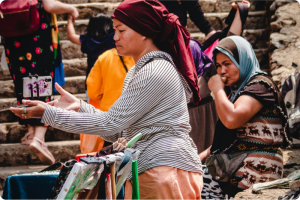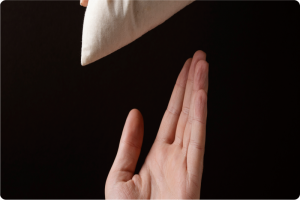What Is Lillah?

In Islam, charitable giving holds a significant place as one of the fundamental aspects of faith. Compassion and selflessness are two of the attributes that are the most highly regarded by Allah (SWT).
Lillah encompasses many different forms of entirely voluntary charity in Islam, that are all forms of giving for the sake of Allah. If any charity is given on an entirely voluntary basis with the intent to please Allah (SWT) it is a form of Lillah.
How Is Lillah Usually Given?
Lillah is an important form of voluntary charity. Usually the donations are given to Islamic institutions for the betterment of local communities.
The process of giving Lillah is done voluntarily and without any expectation of receiving something in return. The giver may choose to keep their donation private or disclose it to others as a means of encouraging others to engage in charitable giving as well.
Lillah, which is giving for the sake of Allah (SWT) in Islam, can be spent on various charitable causes and projects that align with the principles and teachings of Islam. Here are some common ways Lillah is typically spent.
Humanitarian Aid
Lillah funds are often utilised to provide immediate relief and long-term assistance to those affected by natural disasters, conflicts, or poverty. This can involve distributing essential food supplies, clean water, medical aid, and shelter to individuals and communities in crisis. Additionally, Lillah contributions may support organisations that engage in rescue operations, emergency response, and rehabilitation efforts to help affected populations recover and rebuild their lives.
Education and Scholarships
Lillah plays a crucial role in promoting education and knowledge acquisition. It can be directed towards supporting educational initiatives such as building schools, libraries, and educational centres in underserved areas. Lillah funds may also be used to establish scholarships and grants to enable students, especially those from disadvantaged backgrounds, to pursue quality education and develop their potential. By investing in education, Lillah aims to empower individuals and communities with the tools and skills needed for a brighter future.
Healthcare and Medical Services
Lillah contributions are often channelled towards improving healthcare facilities, ensuring access to medical services, and addressing health-related challenges faced by vulnerable communities. This can include establishing and maintaining hospitals, clinics, and mobile medical units in underserved areas. Lillah funds may also support medical treatments, surgeries, vaccinations, and preventive healthcare programs. Moreover, Lillah can play a role in supporting medical research, the development of healthcare infrastructure, and the training of healthcare professionals to enhance the overall well-being of communities.
Water and Sanitation
Access to clean water and sanitation facilities is essential for health and well-being. Lillah funds are frequently allocated to projects aimed at improving water resources and sanitation conditions in disadvantaged areas. This can involve constructing wells, boreholes, and water purification systems, as well as developing sustainable sanitation facilities. By investing in water and sanitation, Lillah aims to address water scarcity, prevent waterborne diseases, and ensure a dignified living environment for communities in need.

Community Development
Lillah funds often contribute to community development initiatives that enhance the quality of life and foster self-reliance. This can involve building and maintaining mosques, community centres, orphanages, schools, and vocational training centres. Lillah can also be used to support income-generating projects, entrepreneurship programs, and initiatives that promote economic empowerment and job creation within communities. By investing in community development, Lillah aims to create sustainable and thriving communities.
Poverty Alleviation
Lillah plays a significant role in addressing poverty and its associated challenges. It can be used to provide financial assistance, livelihood support, vocational training, and microfinance opportunities to individuals and communities living in poverty. Lillah funds may also contribute to income-generating projects, agricultural development, and skills training programs that empower individuals to improve their economic situation and break free from the cycle of poverty.
Da’wah and Islamic Propagation
Some Lillah funds are allocated to activities aimed at spreading the message of Islam, promoting Islamic values, and supporting Islamic educational institutions. This may include publishing Islamic literature, organising educational seminars and conferences, sponsoring Islamic scholars and teachers, and supporting initiatives that promote interfaith dialogue and understanding. Lillah funds play a vital role in preserving and disseminating Islamic knowledge, fostering a deeper understanding of the faith, and strengthening the spiritual connection within Muslim communities.
The Impact of Lillah
The act of giving Lillah instils a culture of compassion and empathy, encouraging individuals to detach from worldly desires and dedicate their efforts to the betterment of others. By supporting the less fortunate, Lillah addresses immediate needs while also instilling hope and dignity in their lives.
Moreover, Lillah plays a crucial role in empowering Islamic institutions and community services. Mosques, schools, orphanages, and hospitals heavily rely on Lillah donations to sustain their operations and expand their services, fostering religious education and supporting the next generation. This strengthens the bond of brotherhood and sisterhood within the Muslim ummah, transcending geographical borders to promote global unity.
At its core, Lillah upholds Islamic ethics and values, emphasising the significance of helping those in need and promoting social justice. By giving Lillah, Muslims reaffirm their commitment to compassionate and caring living, seeking Allah’s pleasure through contributing to the welfare of others and striving for the betterment of society as a whole.

Different Forms of Islamic Charity
There are many forms of charity in Islam. Lillah is among the charitable donations that is given on a voluntary basis, others include Sadaqah and Sadaqah Jariyah. There is also an obligatory form of giving called Zakat that must be donated annually by all financially stable adult Muslims of sound mind.
What Is Sadaqah?
Sadaqah is a general term in Islam that encompasses acts of voluntary giving or charity. It can be in the form of money, goods, services, or even a kind gesture to help others. Sadaqah is not restricted to a specific time, amount, or recipient, and Muslims are encouraged to give it regularly as an expression of compassion, solidarity, and gratitude to Allah (SWT).
What Is Sadaqah Jariyah?
Sadaqah Jariyah, also known as “ongoing charity” or “continuous charity,” refers to charitable acts or projects that continue to generate rewards for the donor even after their passing. Examples include funding the construction of a mosque, a school, a water well, or supporting educational initiatives that have a lasting positive impact on the community.
What Is Zakat?
Zakat is one of the five pillars of Islam and refers to the obligatory almsgiving or charity that financially stable adult Muslims must pay. It is calculated as 2.5% of a Muslim’s accumulated wealth and assets in a lunar year, excluding their basic necessities. Zakat is a means of purifying all the money an individual owns on a yearly basis and helping those in need. Zakat is donated to the specific eight categories mentioned in the Quran, this group of recipients includes poor Muslims.
Muslims are encouraged to donate and give generously as a way to help those in need and support worthy causes. While there are only fixed rules regarding the minimum amount and frequency of charity for Zakat, for the other forms of charitable giving it is recommended to give according to one’s means and with a sincere heart, seeking the pleasure and reward from Allah.
The Difference Between Lillah and Zakat
Alongside obligatory charity, known as Zakat, voluntary charity, or “Lillah,” plays a crucial role in aiding those in need and fostering a compassionate society. Lillah, derived from the Arabic word “Lillahi,” meaning “for Allah,” refers to the act of giving entirely voluntary charity, unrestricted by specific guidelines or amounts.
Unlike Zakat, which constitutes a fixed percentage (2.5%) of a Muslim’s wealth to specified categories of Muslims, Lillah allows individuals to donate any amount they wish, making it an act of goodwill and devotion on an entirely voluntary basis. Both the giver and the recipient of Lillah are expected to approach this form of charitable giving with a sincere heart and the intention of seeking Allah’s pleasure.
The practice of giving Lillah can take various forms, including regular Sadaqah donations, or even donating the interest money accumulated in one’s bank account. One of the major differences between Lillah and Zakat is that while Zakat follows specific guidelines, Lillah allows for more flexibility in choosing the beneficiaries. In addition, Lillah can be given to the poor and needy, close family members, or even Islamic institutions for broader community welfare.

Kaffarah: Obligatory Atonement
This is a form of obligatory charity in Islam that is given as major compensation to atone for intentional sins one has committed. If a person breaks their fast intentionally they are obligated to pay Kaffarah, similarly if they are directly responsible for someone’s death they are obligated to pay Kaffarah. This can be done in various ways, they can free a slave, fast for sixty consecutive days, or if physically unable to do so they can pay to feed sixty poor people for a day. This is enough to forgive one’s shortcomings with regards to missed obligations
The Relationship Between Sadaqah and Lillah
All types of Sadaqah can be considered Lillah as long as they are given with the intention of seeking the rewards and blessings of Allah (SWT). In essence, any Sadaqah donation can become Lillah when the giver donates it solely for the sake of Allah and with the intention of gaining His pleasure.
The term “Lillah” specifically highlights the intention behind the act of giving, which is to seek Allah’s rewards and blessings, this is the only difference between Sadaqah and Lillah. Therefore, any Sadaqah donation given with this intention becomes Lillah, while the same act of charity without the intention of seeking Allah’s pleasure would not be classified as Lillah. This also includes the highly emphasised Sunnah of giving Sadaqah al-Fitr, a specific form of charity given during the month of Ramadan, which is obligatory on every eligible Muslim.

The Importance of Lillah
As Muslims, we are encouraged to donate Lillah generously, without any delay, as it is an excellent means to seek Allah’s pleasure and ward off His anger. By offering Lillah, we contribute to society’s welfare, uplift the less fortunate, and fulfil the duty of providing for the needy as a responsible and compassionate community.
Lillah stands as a powerful form of voluntary charity that complements the obligatory charity of Zakat in Islam. Its flexibility, freedom of choice in beneficiaries, and potential to make a substantial difference in the lives of the less fortunate make it a highly significant aspect of Islamic philanthropy. As we strive to follow the teachings of Islam and seek closeness to Allah, let us remember the impact of Lillah and be eager to donate in the most generous and thoughtful manner, aiming to create a world filled with compassion, justice, and mercy.